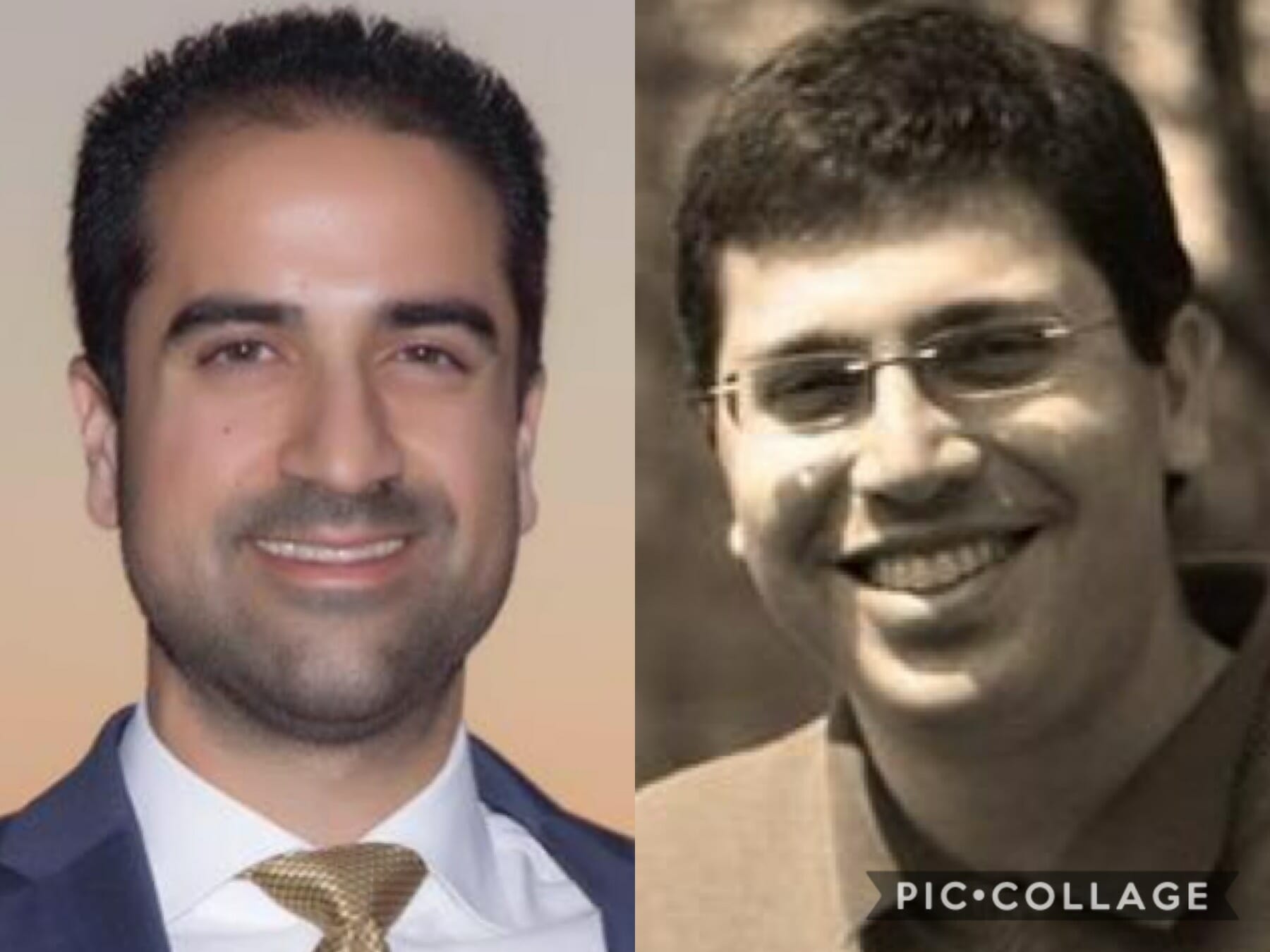Dr. John Mafi (left) and Dr. Daniel Barnett’89 /Courtesy Dr. Mafi (University of California, Los Angeles) and Dr. Barnett (Johns Hopkins).
As of March 1, a sixth American died of the coronavirus near Seattle. Florida, New York, Oregon, California, Arizona, Utah, Texas, Nebraska, Massacushetts, Illinois, and Rhode Island have also reported new cases. As of yesterday, there were 91 cases domestically according to the CDC.
We asked Dr. John Mafi, MD, MPH (Masters in Public Health) and Dr. Dan Barnett, MD, MPH how to prepare for the coronavirus. Mafi is an assistant professor of internal medicine at UCLA, and Barnett is an assistant professor at Johns Hopkins and an Academy alumnus from the class of 1989.
Barnett says, “The virus’s origin seems to be in China. There are wet markets, or live animal markets . . . based on current available evidence, it may likely be of that origin where the first outbreak was detected.”
Regarding the lethality of the virus compared to the flu, Barnett admits, “I think we are still learning about how deadly the coronavirus is. Currently, there have been estimates ranging from 2% cases resulting in fatalities to 2.5%.”
He adds, “That’s likely going to be an overestimate . . . but we’re still learning about this virus. It’s a little premature to say whether it’s more or less deadly than the flu.”
“It’s not too late to get the flu shot,” Barnett says. “The flu kills at least 25,000 or more a year in the U.S. and is not as exotic as the coronavirus but nonetheless has high morbidity attached to it.”
Mafi says that just like the flu, the best way to prevent the coronavirus is by washing your hands (for at least 15 seconds). This includes fingertips and fingernails, which are often forgotten. Refrain from touching your mouth, eyes, and nose as much as possible to reduce the odds of spreading germs from your hands. Barnett advises people to cough into their elbow and use alcohol-based hand sanitizers.
If traveling on public transport, bring Clorox wipes to disinfect your seat. Barnett says, “There is some evidence that suggests that the virus can live off various surfaces for at least a brief window. At the workplace or at school, make sure that door knobs, desks, and so forth are being sanitized. The same is true for at home, making sure to sanitize things like countertops.”
Additionally, says Mafi, “Avoid unnecessary, large gatherings.” Barnett agrees, recommending social distancing: “If you’re in a public space (apart from school–there’s only so much public distancing you can do) in general, 6 feet apart is ideal.”
The U.S. Surgeon General, Dr. Jerome Adams, urged the public to stop buying face masks, warning, “You can increase your risk of getting it by wearing a mask if you are not a health care provider . . . Folks who don’t know how to wear them properly tend to touch their faces a lot and actually can increase the spread of coronavirus.”
In response to this, Mafi explains, “Face masks have not been shown to protect yourself, but if you’re sick, they can protect others, which is why we give them to other sick patients in hospitals to protect our sickest patients.”
For those who are traveling over spring break, Barnett says there is no need to bring surgical masks to the airport: “Surgical masks are not useful if you are not sick and are trying to prevent yourself from being sick. If you have been diagnosed with the coronavirus, then it is appropriate.”
Vitamin D (800 units) can reduce the risk of the cold or flu. There is no evidence that it prevents the coronavirus, but you can take it as a precaution. Mafi proposes taking this daily.
To be safe, communities are asked to consider buying water, non-perishable food, and essentials to last 60-90 days. This is in the event of a quarantine or supply chain interruptions.
Dr. Mafi advises households to stock up on Clorox, washing detergents, toiletries, Advil, rubbing alcohol, Theraflu & Emergen C, thermometer, batteries, tissue and toilet paper, frozen foods, beans, grains, water, prescription meds and personal products.
Dr. Amy Apton, Director of the Ohio Department of Health, also suggested stocking up on items as mentioned by Mafi: “We want people to think about being prepared . . . you want people to have a supply for medicines and food that is non perishable” (Ohio Department of Health).
Mafi also says, “If you’re sick, try to isolate yourself from others in the family. If you’re concerned, call your physician or ER before going to be seen.”
For updates: “Coronavirus COVID-19 Global Cases by Johns Hopkins CSSE”








